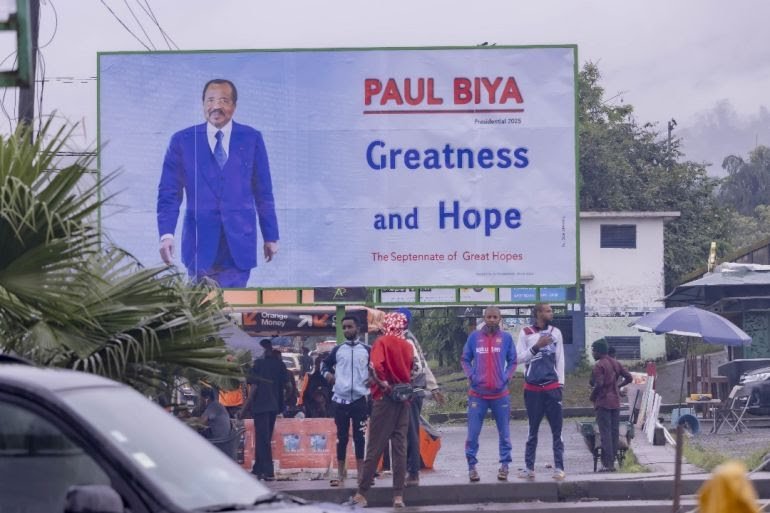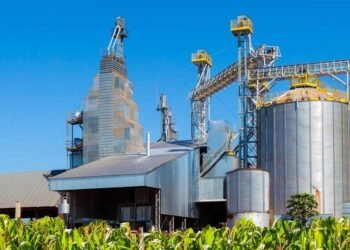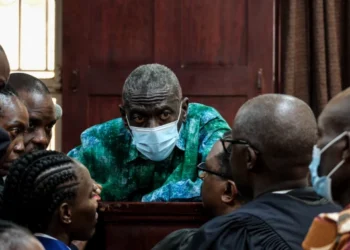Cameroon goes to the polls today, Sunday, October 12, 2025, for a presidential election with incumbent President Paul Biya, 92, seeking an eighth term.
12 presidential candidates are contesting in the election as an opposition of 11 candidates stand against Biya, who, despite his advanced age and declining health, has dismissed calls for him to retire. The winner requires a simple majority to win the election.
The vote is taking place against the backdrop of political stagnation, a cost of living crisis and social unrest.
Opposition parties have accused the electoral commission, Elections Cameroon, of being subservient to the ruling party, and the most credible opposition candidate, Maurice Kamto, has had his candidacy barred by the courts.
Other candidates include former Ministers Issa Tchiroma Bakary, who recently defected from the presidential camp and has gathered several thousand people at meetings around the country, and Bello Bouba Maigari, who was Biya’s first Prime Minister in 1982. Both Tchiroma and Maigari openly challenged Biya’s fitness to lead.
However, observers say that their individual campaigns lacked the cohesion necessary to mount a significant challenge to Biya’s long-standing rule.
About 8.2 million people aged 20 and above are eligible to vote, although voter apathy is on the rise. Many people question the point of voting in a system they believe is rigged in favour of the governing party.
Voter turnout has declined dramatically over the years, exacerbated by ongoing conflicts with jihadists in the Far North region and anglophone separatists in the west.
Many of Cameroonians eligible to vote can remember no leader other than Biya, who has held on to the presidency with an iron fist since 1982.
Biya, who is rarely seen in public, held his first and only campaign rally on Tuesday. Addressing a crowd of supporters at a stadium in the Far North town of Maroua, he promised to step up security in the region, curb youth unemployment, and improve road infrastructure and social amenities if reelected.
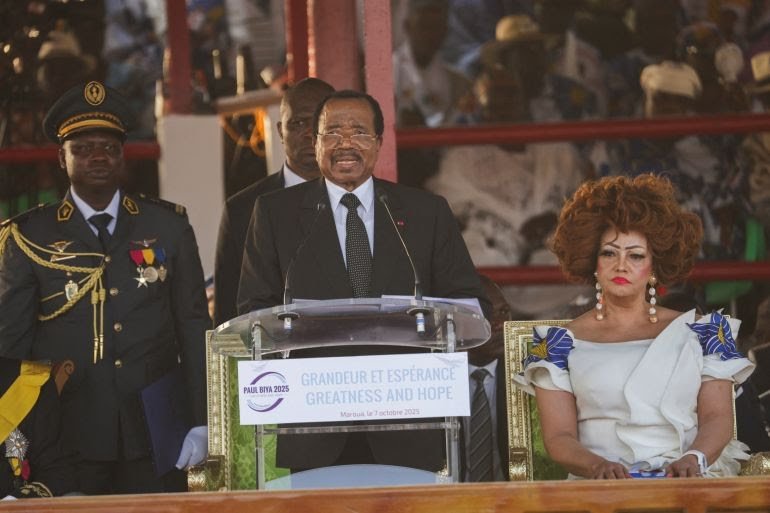
“I am well aware of the problems that concern you, I know the unfulfilled expectations that make you doubt the future. Based on my own experience, I can assure you that these problems are not insurmountable.”
Paul Biya
Cameroon faces significant socioeconomic challenges; a third of the population lives on less than $2 (£1.50) a day, youth unemployment is rampant, and many young people have expressed disillusionment with the electoral process, citing a lack of economic opportunities and political representation.
This year’s election cycle has featured striking appeals for Biya to step aside. His daughter Brenda Biya, 27, said on TikTok last month that her father “has made too many people suffer” and urged Cameroonians not to vote for him. She later recanted, but the post continues to circulate widely among Biya’s detractors.
Biya Most Likely To With Cameroon’s Election
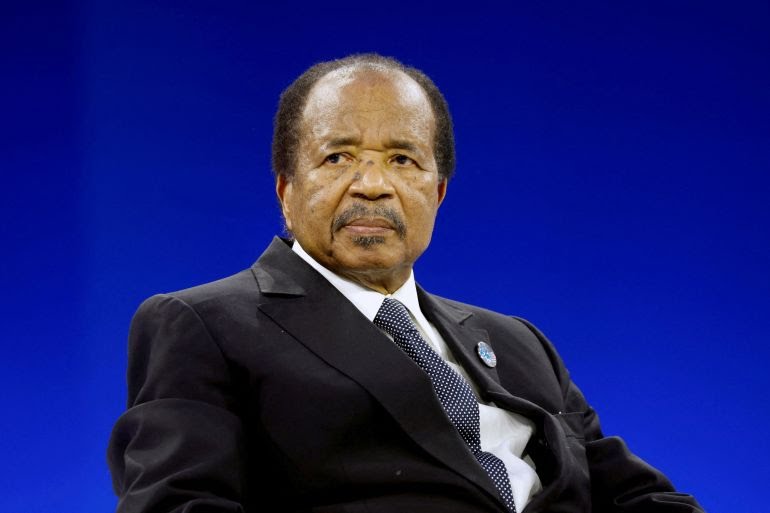
Nonetheless, Paul Biya, already the world’s oldest head of state at the age of 92, is the favourite to win today’s election.
While opposition candidates are mounting challenges to Biya, who has been President since 1982, and was Prime Minister prior to that, Analysts say he is likely to extend his rule for another seven years, and possibly rule until he is 100 years old.
Manu Lekunze, a Lecturer in international relations at Aberdeen University, told a news agency that Biya has managed to hold onto power for so long through tactical control of his own party by using a divide-and-rule approach as well as within opposition camps to discourage any major challengers.
Lekunze noted that Biya has also managed to cement complete support from the military to avoid any risk of a coup and uses state security apparatuses to crack down on dissent or protests.
READ ALSO: Importers and Exporters Applaud BoG’s $1.15bn Forex Boost

